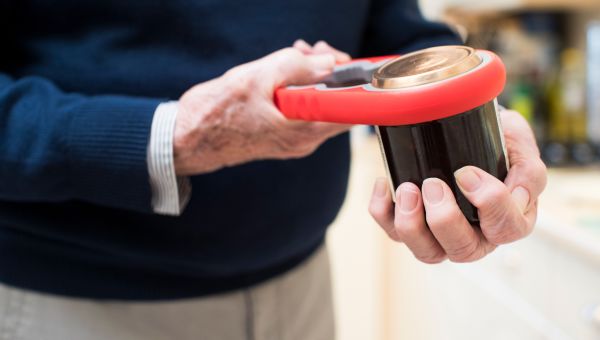9 must-ask rheumatoid arthritis questions
Here's what you need to know about RA.

Who Is Affected by RA?
Rheumatoid arthritis (RA) affects nearly 1 percent of all U.S. adults. And, while RA is typically more common in women and people between the ages of 30 to 60, it can affect men and women of all ages. With so many people touched by this inflammatory and autoimmune disease, it's important to understand its symptoms, diagnosis, and treatments–and to know who to ask for help. To get the answers, we turned to RA patients Lisa Emrich and Ashley Boynes-Shuck, and rheumatologist Scott Zashin, MD–three advocates in the world of rheumatoid arthritis

What Do RA Symptoms Feel Like?
On brassandivory.org, Lisa Emrich, who has multiple sclerosis and RA, says the first symptoms of RA can be a little vague. "Often symptoms may just be achiness, swelling in joints, or an overall feeling of fatigue. It can be a little pain, or it can sometimes come on very strongly as obvious, big, red, and hot swelling joints," blogs Emrich. Ashley Boynes-Shuck, an advocate living with juvenile RA, celiac disease and other autoimmune issues, shares her insight for the Arthritis Foundation's Mid-Atlantic Region blog (midatlanticarthritis.wordpress.com). "Rheumatoid arthritis is more of an almost searing, burning pain–it's much more acute and painful than osteoarthritis," she says.

What's Your Best RA Pain-Relief Tip?
Emrich says the best thing you can do for your joints is to start the day with a stretch. "I stretch carefully every morning. I start off by scrunching up my toes, then I stretch my feet and legs. Before I sit up in bed, I make sure I can straighten out my legs and feet, then I gently fold myself over the middle, stretching my arms and hands out, just lengthening out the bones a bit." Skipping a stretch makes Emrich feel as if she's a contestant on "Survivor." "If I don't stretch and step out of bed, it feels like my feet are getting crunched on rocks," says Emrich. "If you stay flexible, it's not as painful. But some people have this pain all the time and they simply can't avoid it."

How Can Daily Tasks Be Less Painful?
Simple daily tasks like opening a jar or cutting an apple can be painful if you're living with RA. Suggests Emrich, "If you have rheumatoid arthritis in your hands, the key is to buy wider grips for everyday items like kitchen utensils, steering wheels, etc.–so you won't have to over-grasp anything. I also like Jar Pop, a little plastic device that helps me open jars. Curved knives are also easier to hold, so it's less painful on your hand." If RA affects your feet, Emrich says you should also see a podiatrist to be fitted for custom-made shoe inserts that can help relieve pain and pressure when you walk.

Is Exercise Really Possible with RA?
Says Boynes-Shuck, "When I was younger, I played softball, basketball, and was a cheerleader, but I had to quit because my arthritis was so bad. For years, I barely did anything because I was discouraged by my condition, but one day I had an "Aha!" moment where I realized how important exercise is for my body. I started off slowly just taking my dog for a walk every day, but as I built more confidence, I started yoga, then biking, now I'm at the point where I'll try anything: jogging, weight training and tread climbing." She believes exercise is the most important hurdle people with RA have to overcome. "Just stretching and walking around every hour is great for your body."

What Should I Know About RA Treatment?
"A main misconception about RA is that there's nothing that helps treat it," says rheumatologist Scott Zashin, MD. But with early diagnosis and treatment, you have the best chance of doing well and preventing it from affecting your quality of life." Treatment for RA has greatly improved in the past decade, adds Dr. Zashin. Your doctor will try to determine if you have mild, moderate or severe RA, and come up with a treatment plan from there. Treating your RA will also help your heart. According to Zashin, "High levels of inflammation in the blood due to rheumatoid arthritis can cause an increased cardiovascular risk. Treating it could help control your cardiovascular health."

Can Natural Remedies Boost My RA Treatment?
Doctors say medications are key, but some complementary options may also help. Boynes-Shuck says going natural has been the best treatment plan for her rheumatoid arthritis. "The right treatment plan is different for every patient. For the past year, I've been holistic, and I've actually gone into remission by treating my rheumatoid arthritis this way," says Boynes-Shuck. "When I get a flare-up, which is rare now that I've gone the natural route, I eat a lot of anti-inflammatory foods such as blueberries, salmon, cherries, and ginger. I also like to soak in a hot bath with Epsom salts. I do whatever will make me comfortable, and have even tried acupuncture and massage."

What Are Some Common RA Misconceptions?
Boynes-Shuck was just 10 years old when she was diagnosed with RA. "Arthritis can affect people of any age," says the patient, blogger and advocate. "Growing up, I never saw myself reflected in the articles I read about RA while waiting for my doctor's appointments. Even now, in my late twenties, I still don't see myself reflected in those articles, even though arthritis seems to be skewing younger and younger." It's important to know that RA doesn't just affect older people. Emrich adds that RA is also really hard to diagnose, "It's not diagnosed with a blood test alone, and you don't necessarily have to have visibly swollen and red hot joints for it to be RA."

What Do RA Caregivers Need to Know?
If you're a caregiver for someone with RA, patience is key, says Boynes-Shuck. Keep in mind that it's a challenge for your loved one to go from being active and independent to having trouble with everyday tasks like opening a jar or doing chores. Patience and support are the best things any caregiver can offer. "I'm lucky to have a wonderful support system, but many people in the arthritis and chronic illness community don't have enough support and feel as if they're being judged," she adds. "I would advise caregivers and family members to be careful they're not putting off a judgmental vibe. It's hard enough living with these illnesses, but it's even worse to feel that someone is judging you."
More On


video

article

slideshow


video


video
